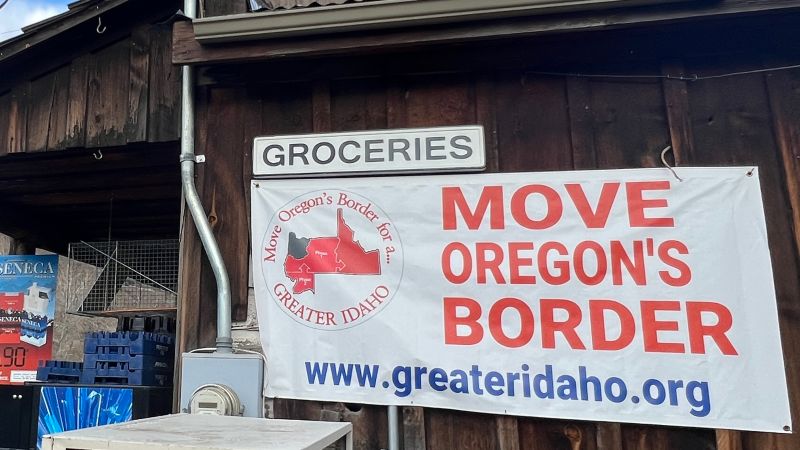
John Day, Oregon
CNN
—
Matt McCaw cringes if you say the word “secessionist” around him.
A native of eastern Oregon, McCaw is a mild-mannered, former high school math teacher who fosters children to help his community.
“We don’t think of ourselves as a secessionist movement. We see ourselves as a self-determination movement,” McCaw said of the Greater Idaho Movement, which seeks to move the Idaho state line west to include more than half of Oregon.
What would have previously been brushed off as a fringe proposition to add the predominantly Republican region of eastern Oregon into conservative Idaho has lunged forward in the Idaho state legislature. There have been plenty of other attempts across the country to break off pieces of states to try to join more politically analogous ones, but this one has advanced the furthest. The measure passed the state House last month and advanced to the state Senate, where it sits in committee, with the session expected to wrap by the end of March.
Critics see such efforts as a symptom of a bigger problem facing the US post Covid-19 pandemic – unprecedented hostility toward those who don’t share the same politics.
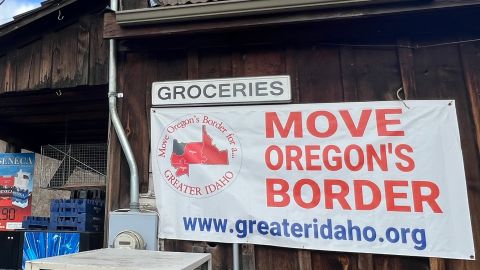
In Idaho, where Republicans control the legislature and the governor’s mansion, the Greater Idaho Movement’s success has surprised state lawmakers on both sides of the aisle in the northwest. But further state and congressional hurdles lie ahead – including some that even its most ardent supporters admit may be insurmountable.
“When I started two and a half years ago, a lot of people rolled their eyes and laughed. Elected leaders didn’t pay us any attention,” McCaw said. “Two years later, we have elected leaders that are listening.”
One of those elected leaders is Idaho GOP state Rep. Barbara Ehardt, who introduced House Joint Memorial 1, the bill authorizing state legislators to open talks with Oregon about relocating the shared state line. There’s a similar bill before Oregon’s state legislature that has gathered less traction.
“It just overwhelmingly hit me. This makes sense. This made a lot of sense,” Ehardt said of her reaction when Greater Idaho Movement members first shared their plan. Moving more than half of Oregon’s geographic footprint, though far more sparsely populated than the western portion of the state, felt like simply bringing the same type of people into one state, she said.
But she sympathized most on the issue of government representation of the rural Oregonian region.
“Constitutionally, people should have the opportunity to seek redress from their government,” said Ehardt. “When you go to seek redress and your government doesn’t listen to you, where do you turn? These people were seeking redress from the next best thing, which would be us,” she said of conservatives in eastern Oregon – a state that backed President Joe Biden by 16 points in 2020.
The redress that members of Greater Idaho want is representation of their conservative, minority viewpoint in an Oregon state government overwhelmingly controlled by liberal Democrats, said McCaw. But with that unlikely to happen, being part of Idaho – which backed former President Donald Trump by more than 30 points – looks more appealing.
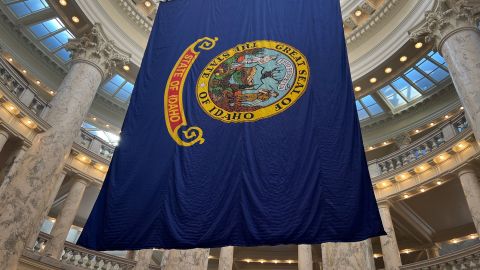
Seated on a bench looking out at the 20-acre expanse of his yard in Powell Butte, Oregon, fresh snow lightly covering the juniper trees, McCaw’s property is a world away from Portland. It’s a liberal city he knows well, having lived and taught students there for 20 years. McCaw and his family only recently left when the pandemic struck, frustrated by the school closures and restrictions on his family.
The problems between where he currently lives and his old city, he said, begin with rural Oregonians living fundamentally different lifestyles than people in the city of Portland. At the ballot box, due to the population strength of the cities, the rural region is outnumbered in every major statewide vote.
McCaw cited gun control and decriminalization of drugs as two major issues where the lesser-populated rural and vote-rich urban divide collide. “The political tension does not come because Portland’s doing something. The political tension comes when Portland does something and says we have to do the same thing. It doesn’t work for us.”
Sandie Gilson, a Greater Idaho Movement board member and a small business owner in John Day, Oregon, sees the problem more simply. “We are very different people,” she said of the cultures in the east versus the west of her state. “The rules and regulations that they’re making, that makes sense in the city, don’t make sense out here. The people here haven’t changed. Portland’s changed. Salem’s changed. Eugene has changed.”
Gilson says government boils down to representation. “I don’t believe that the Oregon government as a whole and the supermajority that has been in power there for many decades is listening to eastern Oregon at all.”
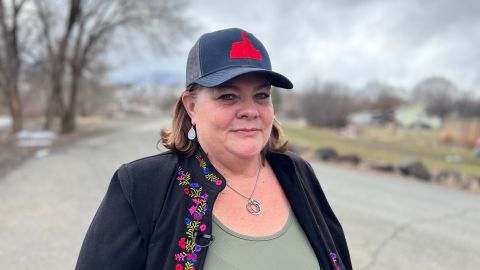
The discontent of rural communities with their urban, and often liberal, counterparts has been a longstanding sentiment across the US.
Nearly two years ago, Republican legislators from three Western Maryland counties penned letters asking state legislative leaders if they could leave Maryland and join their more conservative neighbors in West Virginia. And in West Virginia in 2020, some Republicans in the state legislature tried to get conservative counties in Virginia to join them – 160 years after West Virginia broke off from the commonwealth.
In Colorado, Weld County residents have seen a variety of efforts to move the state line so that Weld – a county that backed Trump by double digits in a state that voted for Biden – would become a part of much redder Wyoming. An online petition urging support for the move states, “Weld County’s values align more with Wyoming than Denver/Boulder,” adding that “rural communities are getting ignored.”
And in New Mexico in 2021, a Republican state senator proposed a constitutional amendment that would allow counties to petition the state legislature to secede from the state and join a neighboring state or create a new one.
But none of these measures have gone much beyond proposals. The success of Greater Idaho is notable because it’s already passed one chamber of the legislature.
Idaho state Rep. Ilana Rubel, the Democratic minority leader, views the redrawing of the state line as dangerous partisan politics.
“I’d laugh if I knew for sure it wasn’t going to happen,” she said.
But she sees the bill as a real threat, with Democrats outnumbered in trying to stop it. “Ten years ago, I think I would have thought it was much more of a fringe unlikely possibility. I don’t rule anything out as impossible anymore.”
Rubel commiserates with rural Oregonians who say they’re seeking fair representation. As a Democrat, Rubel is in the political minority in deep-red Idaho. “We’re part of a 16% minority,” said Rubel. “It is a micro minority or a super minority. This whole ‘greater Idaho’ thing I find so ironic because here they are saying, ‘We’re a 44% minority in Oregon. This is outrageous. How can we be expected to live as part of a 44% minority?’ This is a bit hilarious to me as part of a 16% minority. We certainly don’t get our policy preferences very often.”
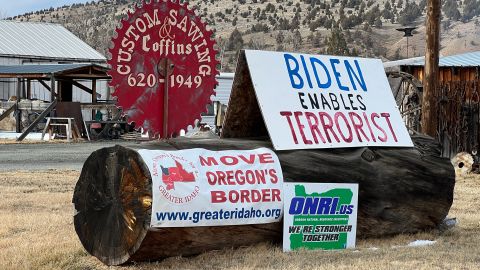
And Rubel sees the advancement of the Idaho bill as a symptom of an increasingly polarized nation.
“It’s sad but I guess not too surprising that people are now looking at carving up states and moving state lines that have been in place for more than a century so that they can avoid being around people with whom they politically disagree.”
“Are we going to carve Georgia out of Atlanta? Are we going to carve Austin out of Texas? Are we going to slice up Western Illinois?” she asked, alluding to overwhelming blue cities surrounded by more purple and red areas.
McCaw simply says in response, “Yes.”
He and Ehardt acknowledge that rural leaders in multiple states, many of them battleground states like Michigan and Georgia, have inquired about the political path Greater Idaho is taking. When asked where the moving of state borders for political reasons should stop, their answers become murkier. “What I would say to that is it needs to go as far as it makes sense,” said McCaw.
Ehardt sees the immediate redrawing of the state line between Oregon and Idaho as one that would bring peace to the northwest region.
“We don’t want them to start an internal war battle. But at some point, that’s what people are going to turn to if they can’t be listened to,” she said of rural Oregonians. “So they’re turning to us. And if we can create a path forward, others can too.”
Kyung Lah and Jack Hannah reported from John Day and Redmond, Oregon, and Boise, Idaho.
